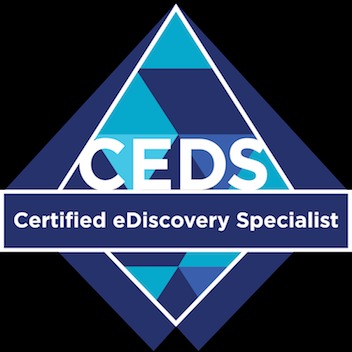티스토리 뷰
The difference between e-discovery and information governance is the difference between reactive and proactive.
When documents shifted to digital format, companies needed a solution to help find and identify the electronically stored information necessary for legal procedures. Enter e-discovery.
E-discovery allows companies to identify information assets, which enables them to establish governance policies. These policies include proper retention controls, storage hierarchy migration criteria, metadata capture, security, privacy and access rights and more. The discovery and inventory of information assets is a necessary part of an overall information governance strategy.
A Complementary Relationship
On their own, discovery, inventory, retention and disposal do not provide the full picture. Information governance changes what has typically been a reactive process to a more proactive one by understanding what information assets are available and the value that each provide. This ensures that corporate and customer information is secure and easily located. It defines the policies by which information should be controlled and enforces those policies across the company’s information repositories, while taking into account all of the necessary and appropriate jurisdictional laws and regulations.
Learn Before You Look
As businesses look at e-Discovery options, they need to consider the following:
- Pay now or pay later — It’s no secret or surprise that the e-Discovery process is very costly. If a company is more organized, the cost and effort associated with litigation is significantly lowered.
- Auditable — Courts and legal teams will agree that an audit trail is extremely important — what policy was used, when was the policy approved, who approved it and when was it applied.
- Defensibly delete expired information — Everyone agrees that the “keep it forever” mentality that has existed for years is not cost-effective from either a storage or e-Discovery perspective, nor is prudent from a litigation perspective. Companies must have policies which enforce the deletion of information that has met its legal and regulatory retention requirements. This must be done in an auditable manner to ensure compliance — which will protect companies from future litigation.
- Avoid spoliation — The spoliation of evidence is the intentional or negligent withholding, hiding, altering or destroying of evidence relevant to a legal proceeding. Good policies which are enforced effectively help organizations to prevent spoliation due to negligence.
- Apply what you’ve learned — Some litigation cases take a significant amount of resources and time. Information governance enables a company to update and apply policies based on past experiences so the next time litigation arises, the company is in a better position.
- Systematic process — Embedding the information governance program and retention management process with the e-Discovery process ensures the organization has an end-to-end flow of how information should be governed, collected, used and produced.
- Connectivity — In addition to connecting the IT systems with the e-Discovery process, an information governance program aligns the needs of IT, business, legal and records management.
- Insurance policy — When it comes to litigation, there are many unknowns. Who is going to sue you, what’s the topic, when are you going to be sued, etc. An information governance program proactively prepares companies for litigations or audits.
- Jurisdiction issues — For multinational companies, legal mandates vary tremendously from jurisdiction to jurisdiction. An information governance program enables a company to better manage these changes and ensure they comply with the different laws and regulations as it pertains to e-Discovery.
About the Author
Bassam Zarkout is the CTO of RSD, a pioneer in information governance solutions, and has been leading the innovation, vision, creative strategy and architecture of RSD GLASS™. He is a thought leader in the information governance space (conception, design, development and implementation) and is a frequent speaker at key industry events.
'Info Gov' 카테고리의 다른 글
| 리컬테크 (0) | 2021.02.04 |
|---|---|
| New York Cybersecurity Rules take effect on March 1 (0) | 2017.03.21 |
| FTI Technology Unveils Info Gov Services (0) | 2015.01.13 |
